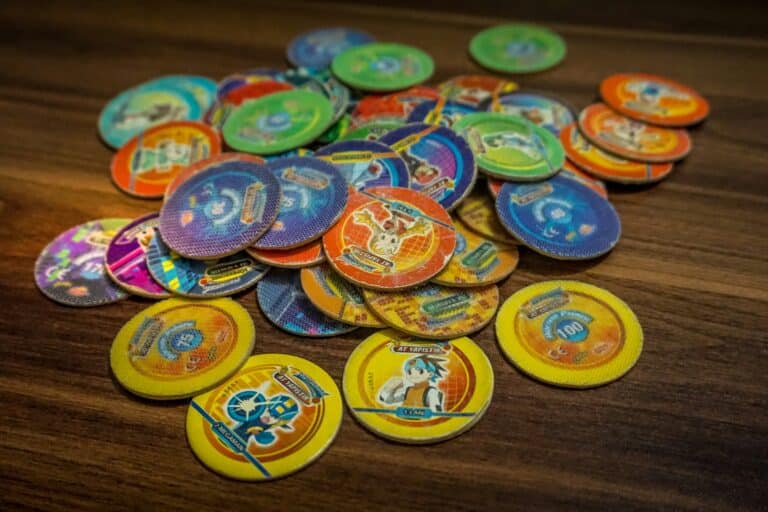Quizzes and assessments, when designed with a keen understanding of the learning material and the cognitive capacity of learners, can amplify learning outcomes and promote a deeper understanding of core concepts. This blog post will delve into the heart of these strategies, elucidating the role of quizzes in enhancing comprehension, retention, and overall learning performance. 🧠💡

The core of this blog will center around two primary themes: the science of learning retention and the potential of well-structured quizzes to foster it. Both of these elements are tied inextricably to the learning process, and their combined effectiveness can reshape the educational landscape. Throughout this exploration, we’ll dissect each component, unlocking the power of quizzes and demonstrating how they can be harnessed to solidify core lessons and boost learning outcomes. 📚🎯
The first section will scrutinize the intricacies of learning retention. Retaining information, particularly in dense subjects like mathematics or science, is a skill that learners need to hone over time. With the right strategies in place, educators can encourage students to remember and utilize the information they’ve learned, thereby reducing the ‘forgetting curve.’ This section will shed light on the cognitive processes involved in memory retention and how quizzes can help in strengthening these cognitive functions. 🧩🔄
Following this, we will shift our focus to the power of quizzes and their role in learning. Quizzes, often perceived as mere evaluative tools, are in fact, powerful learning aids. They engage learners, promote active recall, and help embed information into long-term memory. By introducing a variety of quiz formats and strategies, educators can create a dynamic and interactive learning environment that enhances both understanding and retention. This section will dissect different types of quizzes, including multiple-choice, fill-in-the-blank, and open-ended questions, and will present research-backed strategies for implementing them to bolster learning outcomes. 🎲🏆
The final part of the blog will synthesize these ideas, offering a guide to mastering the ‘material’ through effective quiz strategies. It will equip educators with the knowledge and tools they need to create compelling quizzes that not only test learners’ understanding but also reinforce and extend their learning. From question design to feedback mechanisms, it will cover all aspects of quiz creation, ensuring that educators are well-equipped to use quizzes as powerful learning enhancers. 🛠️📈
So, if you’re an educator looking to supercharge your teaching methods, or a student aiming to optimize your learning process, this blog is a must-read. Prepare to embark on an enlightening journey through the realms of learning retention and quiz strategies – two key elements that, when harmonized, have the potential to drastically improve learning outcomes. Stay tuned! ✨🚀
The Power of Quiz Strategies in Reinforcing Core Lessons
📚 Quizzes have a profound impact on the learning process. Far from being mere evaluative tools, they serve to reinforce learning and enhance the comprehension of core lessons. In the ever-evolving landscape of education, finding innovative and effective strategies to boost learning outcomes is paramount. Hence, mastering the art of quizzing can be a game-changer. “The Power of Quizzes in Learning” by Edutopia provides an in-depth look into the significance of quizzes in education.
Quiz strategies can take various forms, each with its strengths and drawbacks. The choice of strategy often depends on the learning objectives, the nature of the content, and the learners’ preferences and abilities. Let’s explore the key quiz strategies and how they can solidify core lessons.
Before we delve deeper, it’s crucial to note the two main categories of quizzes: formative and summative. Formative quizzes are low-stakes, intended to provide feedback during the learning process. They are more informal and often used as a teaching tool. Summative quizzes, on the other hand, are high-stakes and used to evaluate learners’ comprehension at the end of a learning unit. Both types play a crucial role in reinforcing core lessons and enhancing learning outcomes.
Understanding Different Quiz Strategies
Choosing the right quiz strategy can make a difference in how effectively learners understand and retain core lessons. The following table compares the most common quiz strategies, highlighting their features and benefits.
| Quiz Strategy | Features | Benefits |
|---|---|---|
| Recall-Based Quizzes | Questions prompt learners to retrieve information from memory. | Improves memory retention and recall ability. |
| Conceptual Quizzes | Questions require learners to apply concepts to solve problems. | Strengthens understanding and application of concepts. |
| Open-Book Quizzes | Learners can refer to resources while answering questions. | Encourages independent research and critical thinking. |
Check out the video “Different Types of Quizzes and Their Impact on Learning” by The Learning Scientists for more insights into these strategies.
Recall-Based Quizzes
Recall-based quizzes prompt learners to retrieve information from their memory, thereby strengthening memory retention and recall ability. This strategy works on the principle of ‘practice retrieval,’ a powerful learning technique. Regularly recalling information makes it easier to retrieve when needed, solidifying the core lessons in learners’ minds. However, it’s essential to ensure that the quizzes are well-timed and spaced to prevent cognitive overload.
Conceptual Quizzes
Conceptual quizzes require learners to apply the learned concepts to solve problems or analyze scenarios. This strategy not only checks the learners’ understanding but also their ability to use the concepts in real-life situations. It encourages learners to think critically, thus deepening their understanding and solidifying the core lessons. A well-structured conceptual quiz can serve as a powerful tool to connect theoretical knowledge with practical application.
Open-Book Quizzes
Unlike traditional quizzes, open-book quizzes allow learners to refer to resources while answering the questions. This strategy encourages learners to engage in independent research and critical thinking, rather than rote memorization. It simulates real-world situations where individuals have access to resources and need to apply their understanding to solve problems. As such, open-book quizzes can be highly effective in reinforcing core lessons and improving learning outcomes.
Optimizing Quiz Strategies for Maximum Impact
While the choice of quiz strategy depends on various factors, optimizing them for maximum impact involves certain universal principles. Let’s delve into some effective ways to enhance the effectiveness of quiz strategies.
Spacing and Interleaving
Spacing out quizzes over time and interleaving different topics within a single quiz can significantly enhance learning. This technique, often termed as ‘distributed practice,’ prevents cognitive overload and strengthens memory retention. It also allows learners to draw connections between different topics, thereby enhancing their understanding of the core lessons. For more insights, watch “The Science of Learning: Spacing & Interleaving” by the Learning Scientists.
Feedback and Reflection
Providing timely and constructive feedback on quizzes can greatly aid the learning process. Feedback highlights the areas of improvement, helping learners rectify their mistakes and deepen their understanding. Encouraging learners to reflect on their performance also cultivates self-assessment skills, enabling them to identify their learning gaps and work on them.
Varied Question Formats
Varying the question formats – from multiple-choice and fill-in-the-blanks to short answers and essays – can keep learners engaged and cater to their different learning styles. While multiple-choice questions are great for recall and comprehension, short answer and essay questions promote critical thinking and concept application. A mix of different question types can ensure a comprehensive evaluation and reinforcement of core lessons.
Mastering the art of quiz strategies can be a transformative step in the learning process. With the right balance of recall, application, and critical thinking, quizzes can effectively solidify core lessons and boost learning outcomes. So, take a moment to reflect on your current quizzing strategies and consider how you can optimize them for maximum impact. Remember, effective learning is not just about teaching; it’s about making the lessons stick. 🎯
Conclusion
In conclusion, we have delved into the complex world of Information Technology (IT) and Engineering, focusing on the role of software engineering. We have unpacked how this discipline is paramount in the modern digital world, and have dissected its various integral aspects in an attempt to make them more understandable.
We began by defining what software engineering entails, highlighting the process of designing, coding, testing and maintaining software systems. Software engineers are behind the efficient software systems we use on a daily basis, systems that have become an integral part of our lives. We have emphasized how crucial it is to have the right skills and knowledge in this field, especially in the current digital age where technology is at the core of almost all aspects of life. 🌐
Subsequently, we took a closer look at the principles of software engineering, demonstrating how these guide the creation of quality, efficient and reliable software systems. We examined various important principles such as modularity, robustness, usability, and maintainability among others. These principles, we noted, are the backbone of any successful software development project. 🛠️
We then shifted our focus to the different methodologies used in software engineering, exploring various models such as Waterfall, Agile, Scrum and Lean. Each of these methodologies has its own unique strengths and weaknesses, and the choice of methodology depends on the specific requirements of the project at hand. We further emphasized how these methodologies streamline the software development process, ensuring the delivery of quality products within the set timelines and budgets. 📊
Our journey didn’t stop there. We dug into the importance of good software documentation, a critical but often overlooked aspect of software engineering. We noted that comprehensive and clear documentation not only aids in the understanding and maintenance of the software system but also promotes collaboration and knowledge sharing among the team members. 📚
And finally, we examined the future of software engineering, exploring emerging trends such as Artificial Intelligence (AI), Machine Learning (ML), and Internet of Things (IoT) among others. These technologies, we noted, are set to revolutionize the field of software engineering, opening up new possibilities and challenges. 🚀
We hope this article has been enlightening and has given you a better understanding of software engineering. We would like to encourage you to continue exploring this fascinating field, perhaps even considering a career in software engineering. The world is in dire need of software engineers who can create innovative solutions to the myriad of problems we face.
We would appreciate it if you could leave your comments, share this article with others, or apply what you’ve learned in your own projects. Your engagement helps us know we’re on the right track and inspires us to keep producing quality content. Feel free to reach out to us if you have any questions or need further clarification on any aspect of software engineering.
For more information, you can check out these resources:
1. “Software Engineering: A Practitioner’s Approach” by Roger S. Pressman and Bruce Maxim (link)
2. “Code Complete: A Practical Handbook of Software Construction” by Steve McConnell (link)
Remember, in the world of software engineering, learning never stops. Stay curious, and keep exploring. 💡
Tags: #SoftwareEngineering, #IT, #Technology, #Engineering



